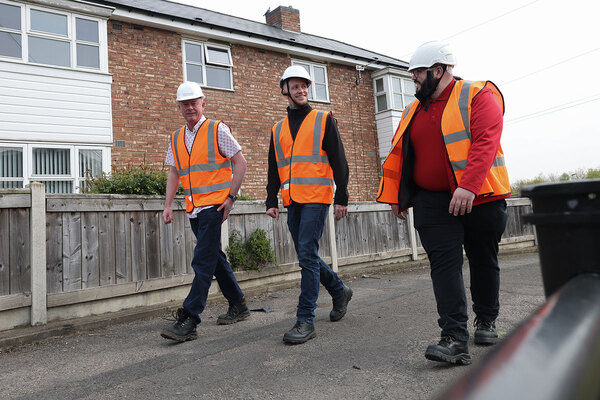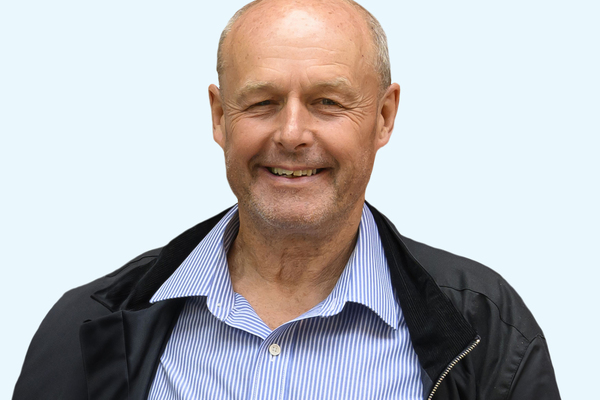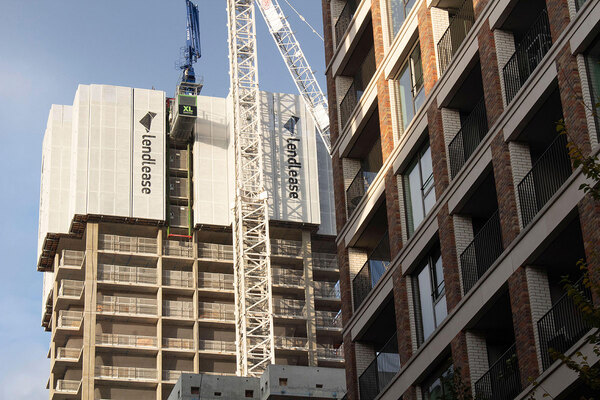You are viewing 1 of your 1 free articles
Tai housing conference 2024: dispatches from Cardiff
Stephen Delahunty rounds up the talking points from Tai 2024, the Welsh social housing sector’s biggest annual conference
For the second consecutive year, the Chartered Institute of Housing (CIH) Cymru’s annual Tai was set in the 650 acre Vale Resort just outside Cardiff, which boasts a castle, golf, leisure and spa facilities.
Key talking points for the sector this year included whether the Welsh government will hit its own social housing target, the impact of a looming rent cap for the private sector, and how professionals in Wales respond to the Better Social Housing Review (BSHR).
Below are some of the main themes and highlights from this year’s conference.
Expect government targets to be revised down
The economic uncertainty and global unrest over the past few years is putting the Welsh government’s 20,000-home target at risk.
The cabinet secretary for housing, local government and planning told delegates that the government is “hanging on to our 20,000 target by the skin of our teeth”.
Julie James said: “I’m determined to hang on to it. We need far more than 20,000 homes.
“I honestly thought when we set that target that I’d be saying at this point in time, ‘Well we’ve done that – we’re moving ahead.’”
Ms James pointed to the impact of the coronavirus pandemic and the cost of living crisis in Wales, as well as an international picture of increasing unrest with the wars in Ukraine and Gaza.
The devolved administration hopes to hit this target for low-carbon social homes in the current Senedd term, covering 2021 to 2026.
In the first two years, 5,775 homes were delivered, according to the latest figures.
A possible timeframe to deal with damp and mould?
The head of regulation at the Welsh government confirmed that it intends to consult on a timeframe for dealing with instances of damp and mould as part of a change to the Welsh Housing Quality Standard (WHQS).
Ian Walters revealed the plan during of a panel discussion that outlined the Welsh sector’s response to the Better Social Housing Review (BSHR).
The BSHR was set up in June 2022 by the National Housing Federation and the CIH to help address the root causes of poor-quality homes. In England, it made seven recommendations to improve quality and include tenants in decision-making.
In Wales, CIH Cymru and Community Housing Cymru, in partnership with the Welsh government, set up a stakeholder group to come forward with a response for the sector.
Mr Walters told delegates that the Welsh government was collecting data to understand the scale of the issue and the work so far had resulted in two proposals.
The first was about sharing training and best practice from the work landlords and sector bodies in Wales had been doing already, including bringing in guidance from other sectors such as public and environmental health.
The second was about responding to hazards as set out under the WHQS, which will include damp and mould and will come with a timeframe for landlords to measure their performance against.
Although there was some push back from panellists on the cost and capacity of social landlords to deal with such a plan given their other competing pressures.
Better pay or better qualifications?
There has been a lot of talk in the sector of late about the need to professionalise and what that might look like. In England, sector bodies have asked the government for a longer transition period before housing managers are made to complete compulsory professional qualifications.
The new Competence and Conduct Standard will come into force in April 2025, requiring an estimated 25,000 housing managers to complete a Level 4 or 5 qualification in housing.
At present, social landlords in England will have two years to ensure that senior staff members are qualified, or working towards a qualification, from April 2025.
The need has not been made compulsory yet in Wales, but there was a feeling of inevitability about the plans.
In a session on the subject called ‘Getting the culture’ right, Inside Housing somewhat stumped the panellists with the suggestion that increasing pay and better working conditions would improve behaviour and attitudes than a new qualification.
The issue of low pay in the sector was something Ms James had raised at her talk earlier that day and a survey last year found that 56% of frontline housing staff were struggling to pay bills.
However, panellists said it was more about balance and finding the right person with the right attitude.
One said: “It would be great to throw money at it and increase salaries and particularly in recognition that they have a difficult role, but I guess you don’t want people to be joining [the sector] for the wrong reasons.”
There was a lot of talk of flexibility and benefits, but does better pay attract the wrong people? I’m not so sure.
Do homes owned by private landlords really just end up as holiday lets?
Last year, the Welsh government launched a consultation on housing adequacy, rent controls and landlord behaviour in setting rents as it looks to better understand the sector.
In a session on what a fairer rent white paper might look like, one of the main points was the need for better data, and that any rent cap in the private rented sector (PRS) should take account of the challenges specific to each region.
Steve Bletsoe, operations manager for Wales at the National Residential Landlords Association, told delegates that 60% of its members were considering leaving the market as a result and many had reported putting their rent up in advance of any cap due to “fear”.
When asked by Inside Housing why PRS landlords selling their properties to social ones, or to first-time buyers or people looking to up or downsize, Mr Bletsoe tried to suggest that the vast majority were ending up as holiday lets.
However, it was something the Welsh government official pushed back on. He also pointed out that Wales has already brought in measures to disincentivise and stop this from happening.
Sign up for our Wales newsletter
New to Inside Housing? Click here to register and receive our Wales round-up straight to your inbox
Already have an account? Click here to manage your newsletters












